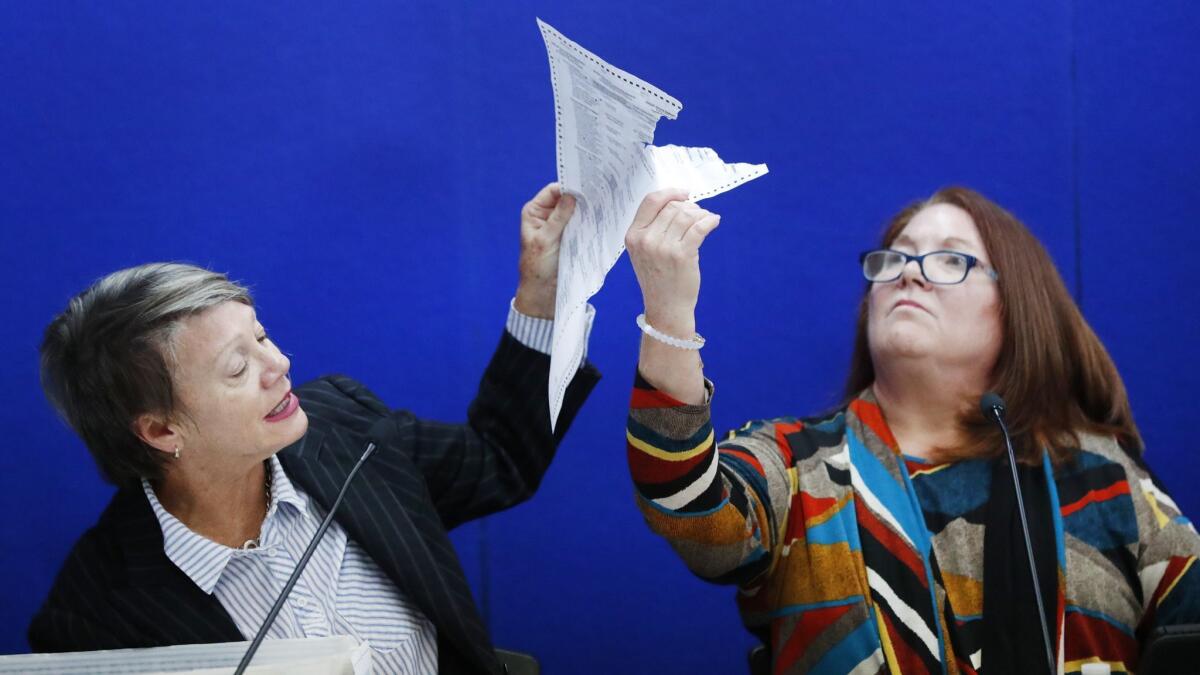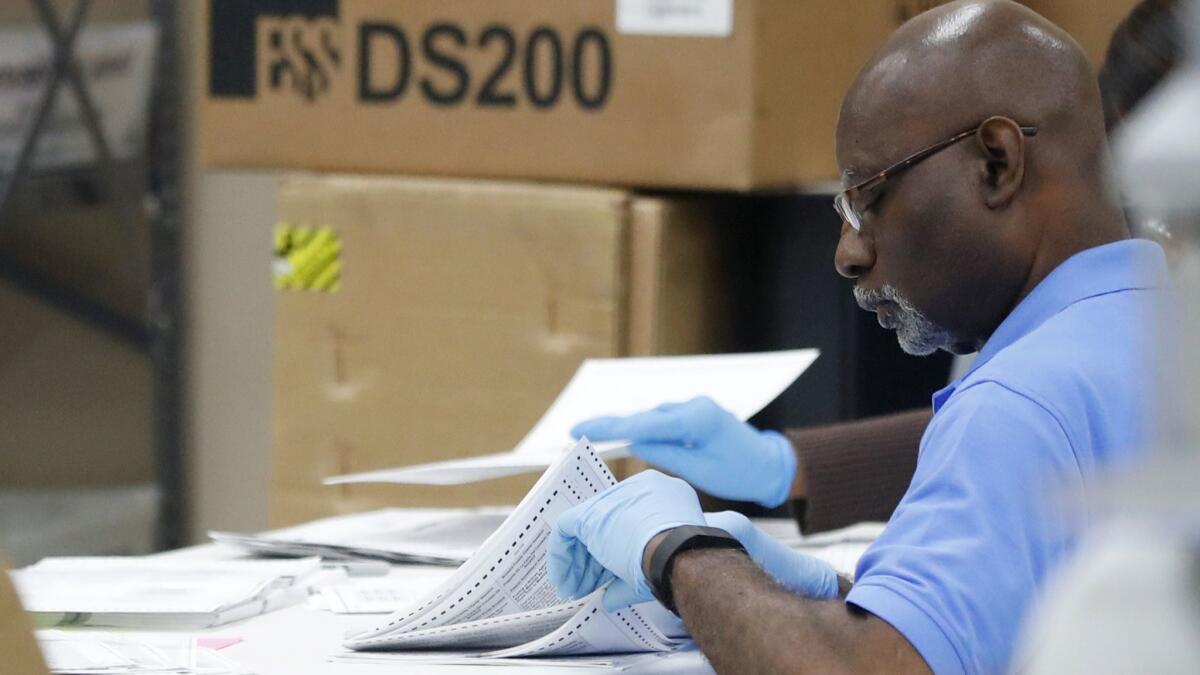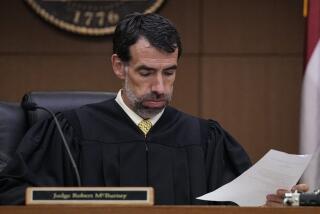Florida election problems make it a ‘laughingstock,’ judge says

Reporting from TALLAHASSEE, Fla. — A federal judge slammed Florida on Thursday for repeatedly failing to anticipate election problems and said the state law on recounts appears to violate the U.S. Supreme Court ruling that decided the presidency in 2000.
U.S. District Judge Mark Walker also rejected a request to extend the deadline later in the day for all of the state’s counties to submit the results of a machine recount.
“We have been the laughingstock of the world, election after election, and we chose not to fix this,” Walker said in court.
Walker vented his anger at state lawmakers and Palm Beach County officials, saying they should have made sure they had enough equipment in place to handle this kind of a recount. But he said he could not extend the recount deadline because he did not know when Palm Beach County would finish its work.
“This court must be able to craft a remedy with knowledge that it will not prove futile,” Walker wrote in his ruling turning down the request from Democrats. “It cannot do so on this record. This court does not and will not fashion a remedy in the dark.”

The overarching problem was created by the Florida Legislature, which Walker said passed a recount law that appears to run afoul of the 2000 Bush vs. Gore decision, by locking in procedures that do not allow for potential problems.
Florida’s 67 counties had until 3 p.m. Thursday to finish recounts that could determine the next senator and governor in one of America’s top political battlegrounds. State officials were expected to post the results.
A total of six election-related lawsuits are pending in Tallahassee. Earlier Thursday, Walker ordered that voters be given until 5 p.m. Saturday to show a valid identification and fix their ballots if they have not been counted due to mismatched signatures. Republicans and state officials have appealed the ruling, but an Atlanta-based court has not yet decided whether to take up the case.
State officials testified that nearly 4,000 mailed-in ballots were set aside because local officials decided the signature on the envelope did not match the signature on file. If those voters can prove their identity, their votes will now be counted and included in final official returns due from each county by noon Sunday.
Walker was asked by Democrats to require local officials to provide a list of people whose ballots were rejected. But the judge appointed by President Barack Obama refused the request, calling it “inappropriate.”
Razor-close races and recounts — there’s a reason Florida’s elections are so fractured »
Meanwhile, the recount threatened to stretch into the weekend. The election supervisor in Palm Beach County, a Democratic stronghold, warned ahead of time that her office would not meet Thursday’s initial deadline.
More than a week after election day, a quick resolution seems unlikely.
Once the machine recount is complete, state law requires a hand review of races with margins of 0.25 percentage points or less. That almost certainly means another recount in the Senate race, with unofficial results showing Republican Gov. Rick Scott ahead of Sen. Bill Nelson by 0.14 percentage points.
Also, the election will not be certified until Tuesday, even though the machine recount may essentially bring a conclusion to the governor’s race, where Republican Ron DeSantis leads Democrat Andrew Gillum by 0.41 percentage points in unofficial results.
Nelson, a three-time incumbent, has defended his legal strategy that resulted in Walker’s ruling, saying in a statement Wednesday that his goal was “to make sure that every lawful vote be counted correctly in this Senate race, and that Floridians’ right to participate in this process is protected.”
Republicans say in their own lawsuits and motions that Democrats are trying to change the rules after the voting did not go their way.
“We will continue to fight to defend Florida law and uphold the will of the voters,” said Chris Hartline, a spokesman for Scott.
Nelson and Democrats had wanted Walker to order the counting of all mail-in ballots rejected for a mismatched signature, arguing that local election officials are not handwriting experts.
Walker said he could not go along with that suggestion.
UPDATES:
4:10 p.m.: This article was updated with quotes from the judge and additional details.
This article was originally published at 11:55 a.m.
More to Read
Sign up for Essential California
The most important California stories and recommendations in your inbox every morning.
You may occasionally receive promotional content from the Los Angeles Times.










